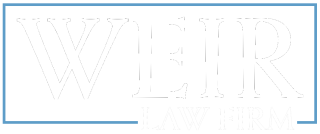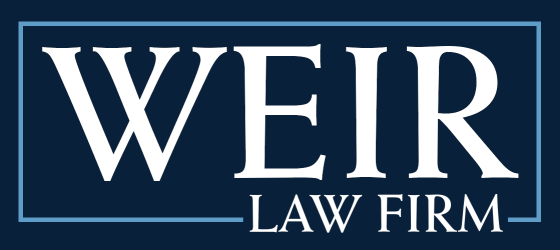
Is Bankruptcy Right for Me?
There is a common misconception that “bankruptcy is the end of my financial life”. This is simply not true. Bankruptcy laws exist to help people who have experienced a financial hardship and need the opportunity to start over. The Weir Law Firm helps individuals with debt relief under the bankruptcy code. There are different types of bankruptcy available for those individuals who wish to pursue it. The Weir Law Firm can help determine which type of bankruptcy will best fit your situation.
BANKRUPTCY IS A TOOL
Bankruptcy is a legal tool designed to help people who are facing overwhelming debts. Bankruptcy is not designed to bring embarrassment; it is intended to provide relief and an opportunity to start over for those who choose to pursue it.
The Right Bankruptcy Law Firm in Tupelo For You.
The Weir Law Firm specializes in Bankruptcy Law, helping people who are facing financial difficulty by providing clear legal advice for their particular situation. It is important to know what options are available to you. The Weir Law Firm will help analyze your situation and determine a course of action that is best for you. Once that plan has been created, The Weir Law Firm will walk with you every step of the way.
Understanding Your Options
The Weir Law Firm helps people file for Bankruptcy under the Bankruptcy Code and provides services related to debt matters such as:
- Chapter 7 Bankruptcy: If you qualify for Chapter 7, you may be able to permanently eliminate certain types of unsecured and secured debts.
- Chapter 13 Bankruptcy: If you earn enough to partially repay your debts through a single monthly payment, Chapter 13 may be right for you.
- Stop Foreclosures
- Tax Debts
- Credit Card Debt
- Divorce and Bankruptcy
- Garnishment
- Avoid Repossessions
- Medical Bills
CHAPTER 7
This is the most common type of bankruptcy. It allows consumers to discharge their debt as long as they meet certain income and assets limitations requirements. Do you want to know if you qualify for a Chapter 7 bankruptcy case? Give us a call.
CHAPTER 13
Under a chapter 13 bankruptcy, a debtor makes a repayment plan to the creditors offering to pay off all or part of the debts from the debtor’s future income. There are several advantages to filing a Chapter 13, including preventing a home foreclosure; make up missed car or mortgage payments; pay back taxes; keep valuable non-exempt property; and more. If you can stick to the terms of your repayment agreement, your remaining debts can be discharged at the end of your plan, typically three to five years. The monthly amount to be paid into a plan is determined by several factors including the debtor’s disposable income.
What types of debt are not dischargeable under Chapter 13?
If debtor completes all payments required by the plan, a discharge of the debt will be granted except:
- debts for child support and alimony
- debts for death or personal injury caused by the debtor’s operation of a motor vehicle, vessel or aircraft while intoxicated
- most tax debts
- debts for restitution or criminal fines
- debts for fraud, embezzlement or larceny
- debts for student loans (unless a court rules that not discharging the debt would impose an undue hardship on the debtor and his or her dependents)
- installment debts whose last payment is due after the completion of the plan
- debts incurred while the plan was in effect that were not paid under the plan


